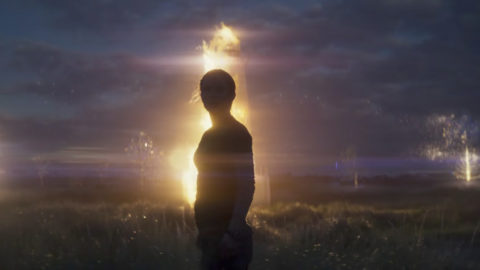By Tyler Wilson in the November-December 2018 Issue

Short Take: Vox Lux
(Brady Corbet, USA, NEON, Opening December 7)
Divided into chapters, Vox Lux begins at the end of the 20th century, when a school shooting leaves teenage Celeste (Raffey Cassidy) with a life-threatening injury. She and her older sister (Stacy Martin) channel their trauma into song, both to console their deceased peers’ families and as a diversion from their own irremediable pain. The music swiftly lands Celeste a record deal, a characteristically sleazy manager (Jude Law), and a notoriety that deliriously shifts gears in the new century: a glossy, bread-and-circus era with Celeste (now played by Natalie Portman) as its avatar.

From the November-December 2018 Issue
Also in this issue
Brady Corbet’s follow-up to 2015’s The Childhood of a Leader begins sharply with deadly violence before resurrecting itself with an arena-sized sense of dread and musicality, manifested in the pop songs performed by its starlet- cum-megalomaniac. The film invests itself in the Faustian hand dealt to Celeste, whose public image has been worn thin by years of cynical reinvention, drug abuse, and, presently, a terrorist attack likely inspired by one of her early hits.
Lol Crawley’s analog cinematography captures the cold, subdued elements of mania just as lucidly as it swirls around the new millennium’s neo-baroque pageantry, with Vox Lux madly alternating between repressed melancholy and the near absurdity of its coupling of mass murder and pop music. These two aspects are joined by the soundtrack—both Scott Walker’s grave, bow-thrumming instrumentals and Sia’s numbingly mainstream electropop—to suggest that we’re all constantly being violated even as we pretend nothing is happening.





